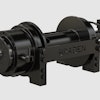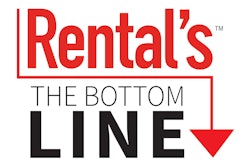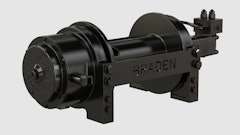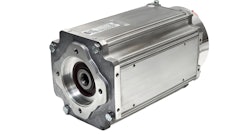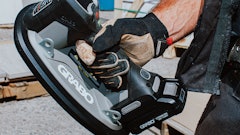
Renters come in many flavors. As such, not all want to interact with you in the exact same way. Some want to do business by phone. Others want to deal face-to-face.
However, convenience-oriented customers are increasingly showing a preference for making equipment rental arrangements on the internet. Their desire is to use a computer, tablet, or smartphone to digitally select the rental equipment they need and then fill out the necessary forms, submit required documents, and tender payment—all electronically.
This should come as no surprise, since the number one way that prospective renters discover enterprises like yours in the first place is through Google and other Internet search platforms, according to a report presented at ARA RentalTech 2020. Another source (ahem, Rental) calculates that as many as 97 percent of consumers now go online to locate suppliers of the goods they seek and, further, that as many as 80 percent of them expect to be able to view products online before making a transaction decision.
If you yourself own an Internet-connected device, then you very likely already know what online shopping and e-commerce are about. But in case you’ve been living as a castaway on a deserted island for the past 25 years and are just now making your way back to civilization, here’s what’s changed: consumers are now able to fully patronize businesses without stepping foot inside a physical store, showroom, or sales office. Thanks to technology, today’s consumers never have to leave the comfort of home to browse the aisles, compare prices and quality, make reservations, and pay the bill.
Indeed, one of the biggest reasons why you should add online/e-commerce renting as a complement to your traditional way of doing business is that consumers love and expect it. A second major reason is that your competitors are adopting it and, with it, positioning themselves to leave you in the dust.
The top five equipment rental companies have seen the writing on the wall and, consequently, now offer online/e-commerce renting in concert with an array of associated cyber-services. United Rentals, for example, reported recently that its digital accounts were multiplying at double the rate of the traditional type (United Rentals Q2 Investor Presentation). Then there’s Home Depot, another company with a massive online rental presence. Its customers can now use the Internet to rent equipment and electronically arrange for pickup from any of the chain’s 1,300 stores in the U.S. and Canada.
Quality of the User Experience is Key
You can join the market leaders and make the move to online/e-commerce equipment rentals relatively easily, provided you already use computers to help you operate your business (if not, you’ll need to start from scratch, but, fortunately, going from zero to automated is in and of itself a simple and straightforward process these days).
Success with online/e-commerce renting hinges first and foremost on your ability to offer your customers a quality experience every time they pay a virtual visit to your business. It starts with your website. It needs to be fully modern in appearance, easy to navigate, and delightfully functional, regardless of whether the visit is conducted using a desktop computer or a pocket-sized mobile device.
Also, your website needs to be optimized for search so that consumers using Google, Bing, Yahoo, and other services will be able to find you when they go looking online for rental equipment.
Additionally, you’ll need to install a rental platform on your computer – ideally one that’s cloud-based that provides:
- A virtual shopping cart
- Plenty of checkout functionality
- A robust payment gateway
- Electronic signature collection
- Proof-of-insurance upload capability
- Customer access to orders via a password-protected portal
- Automated email confirmations, reminders, and other notifications
- Integration with your backend system to manage and approve incoming online orders
Recognize that rental e-commerce is unlike pure e-commerce (think Amazon), and as such, is more challenging to conduct. For example, while returns are a fact of life for both rental and pure e-commerce businesses, only in the case of the former is every transaction supposed to end with a return. That’s why you need to use an e-commerce system expressly designed for the equipment rental field — otherwise, you’ll struggle to deal with returns and the unique issues associated with them, such as the assessment and collection of fees for lateness and damage.
Do This Ahead of Cutting the Ribbon
However, before you stage a grand opening of your online/e-commerce operation, you should verify that users can look forward to a quality experience. Do this by putting yourself in the shoes of a first-time visitor. You need to experience your site through their eyes and emotions.
A good way to begin is to have each member of your leadership team go online and visit your website. Have them test drive it. Afterward, debrief them by asking what they thought about the experience. What did they love about it? What did they find frustrating?
Use your leadership team’s feedback to modify your site accordingly. Once you’ve sanded off the rough edges, invite members of your family and trusted friends to try out the site and rent something from it. Ask them for their reaction to the experience. Ask them what they wish could have been better about it. Ask if they would have preferred to visit your store or office in person, and if so, why.
After analyzing their inputs and further modifying your site, visit the online/e-commerce site of a company in an adjacent rental industry. For example, run through the paces of renting a car from Hertz or Avis. Take note of how your experience there compares to the experience that awaits customers at your own site. Adjust your site further if doing so would improve the way your customers can interact with your brand online.
Finally, collect user stories about different rental experiences. Gather these from conversations you have with peers, colleagues, customers, and even random strangers you encounter while walking the dog or grabbing a coffee. This will help you detect opportunities that might enable you to serve your digital customers in new or improved ways.
E-Commerce: The Smart Play
If at present you utilize computer technology to monitor your inventories, keep track of reservations, and manage your books, then there’s no reason not to level-up your game by taking fuller advantage of your system’s capabilities—one of which is online/e-commerce renting.
By making online/e-commerce renting a focus, you can increase your potential for success as measured by number of customers, size of revenues, and—most important—profitability.
Online rental transactions represent one more tool in your arsenal for serving your customers. Consumers now shop online for practically everything. And practically everything can be acquired online. Shouldn’t those who patronize your enterprise be able to do business with you the way they prefer? The answer is a resounding yes.


